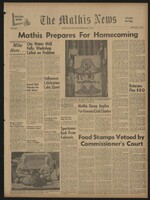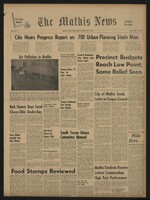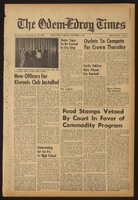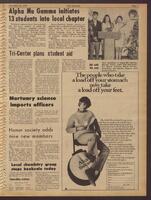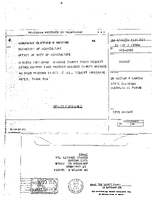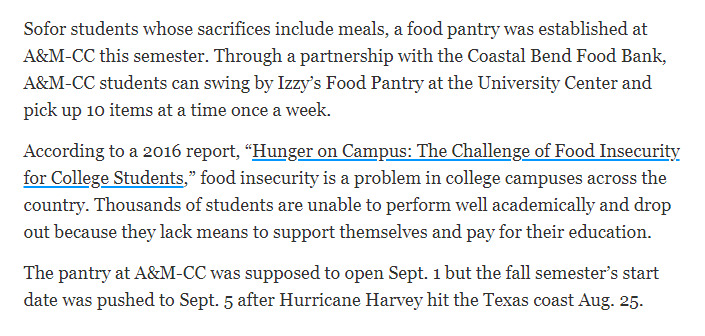Feeding Hope: Dr. Hector P. Garcia & Community Advocacy with Food Insecurity
By: Kristeen J. Baum
Texas A&M University-Corpus Christi is a Regional Serving Institution (RSI), Hispanic Serving Institution (HSI), and Minority Serving Institution (MSI). It has roots that connect back to the South Texas/Border Initiative (STBI), which is an initiative that funded nine regional serving universities along the South Texas border to increase access to education in the form of campus resources, graduate level programming, and becoming absorbed into a larger university system for support and opportunities (Carales & Doran, 2022). In addition, TAMU-CC is also home to the memorial statue and archives of Dr. Hector P. Garcia, a well-known humanitarian who cared for the underserved as a physician in Corpus Christi, created the American G.I. Forum to advocate for Mexican-American veteran rights, and advocated for civil rights at the local, state, and national levels. His legacy of advocacy and helping others continues at TAMU-CC in many ways today, especially through fighting food insecurity on campus.
This digital exhibit connects historical conversations to current conversations about food insecurity and the advocacy taken to help others access their basic needs.
Food insecurity became a topic of conversation within higher education when institutional leaders began hearing stories of students experiencing this phenomenon and responding with establishing on campus food pantries. Colleges across the U.S. have institutionalized resources, like food pantries, voucher programs, etc. due to the growing concerns of food access impacting students. Lack of food access has the capacity to steer students away from education (Dubick et al., 2016). Fletcher (2022) further supports how this barrier can ripple within a student’s life impacting them socially as well. With support from the Vice President of Student Engagement and Success, Dr. Lisa O. Perez began reviewing how to open a food panty at TAMU-CC in 2016. Through conversations with the Coastal Bend Food Bank, a pathway was identified and a new partnership formed.
Food insecurity is defined by the U.S. Department of Agriculture (USDA) as “a household-level economic and social condition of limited or uncertain access to adequate food” (USDA, nd). Currently, the USDA categorizes two types of food insecurity: low food security, which is described as limited access to a desirable diet with little to no reduction of food intake, and very low food security, described as inconsistent eating coupled with reduced intake. In the 1960’s, the USDA began a pilot program to review an initiative on improving nutritional access to individuals through a program using food stamps, which focused on increasing access to fruits and vegetables. With success of the pilot program, the Food Stamp Act of 1964 was passed and provided an opportunity for state leaders to participate in the program (Kerr, 1990).
My search started with the Dr. Hector P. Garcia special collections and archives at the Bell Library. Three telegrams were found from 1970, in which Dr. Garcia was advocating for the food stamp program and food assistance. Each telegram noted a different county (Uvalde, Kerr, and Aransas) in its outreach to the USDA Secretary Harding. So, what were conversations like from 1968-1971 about food access in Texas?
In reviewing other archives, newspapers were found between 1968-1971 that shared a bigger conversation about food assistance. The themes that stood out on the telegrams found from Dr. Hector P. Garcia and news articles found from Mathis, Odem, and San Antonio highlighted some things:
1968: Food assistance was available in the form of surplus and dried goods.
- Some Texas counties were using the Surplus Commodities program and serving eligible households. Households were granted access to dried foods, such as dried milk, flour, dried beans, cornmeal, canned chopped meat, and other items deemed in surplus. The program was described to be managed by the county, sharing information on pick up days, and requiring individuals to pick up the items on the chosen distribution day.
1969: There was tension between citizens and county officials about which program would best serve their households.
- While citizens shared their interest in the food stamp program, local counties felt the surplus commodities program was filling the need. Dr. Hector P. Garcia, along with Pete Rodriguez and Tony Garcia petitioned the court for the food stamp program.
- There were convesations on whether counties could afford to begin the food stamp program since the counties would be responsible for administrative costs, therefore, the food stamp program was vetoed.
1970: Dr. Garcia advocated at the national level for food programs.
1970: There were concerns on how food insecurity could impact students.
- The Ranger highlights conversations college administrators were having with community members on supporting students attending higher education.
Fast-forward to 2016, conversations were occurring at TAMU-CC about students who would share worries about accessing food. In the Spring 2017 semester, the Steering Committee led by Dr. Lisa O. Perez and Dr. Don Albrecht began plans to set up a food pantry within the University Center. In working with the Coastal Bend Food Bank, Izzy's Pantry became the first food pantry in the coastal bend established on a college campus. Izzy's Food Pantry had a delayed opening in the Fall 2017, due to the impact from Hurricane Harvey on the coastal bend and surrounding areas.
With the growing concern, there were advocates within the TAMU-CC community and partnership within the Corpus Christi community to help students. The pantry was originally donation based, therefore, required help from the community to sustain itself.

